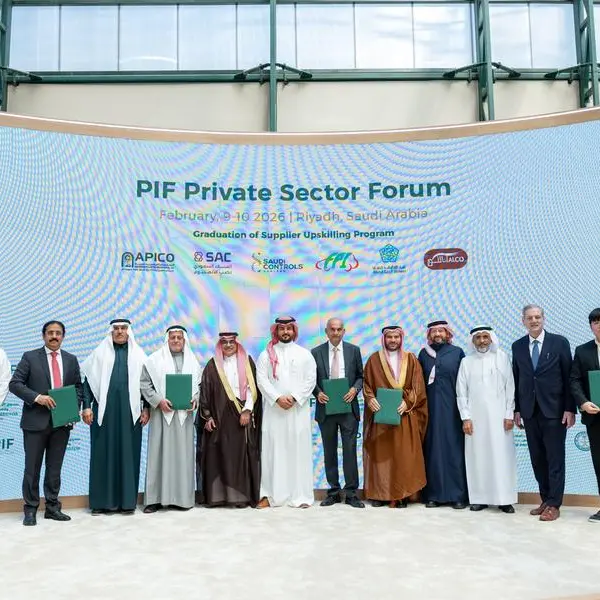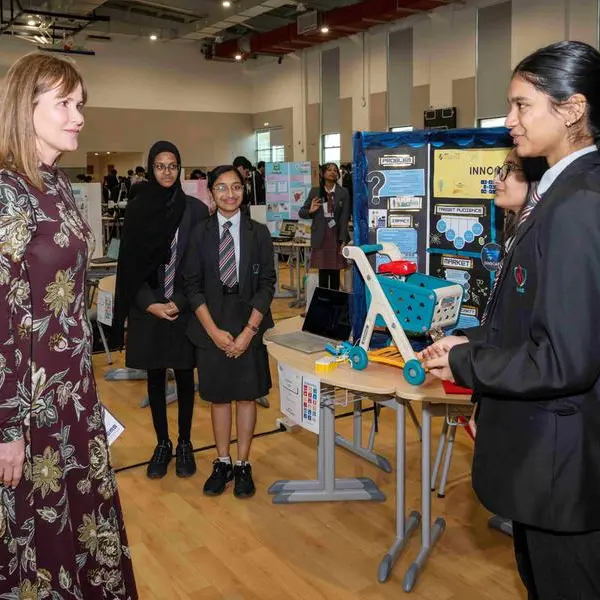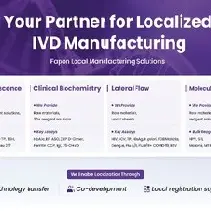PHOTO
- Middle East region focusing more on their health and rehabilitation
Dubai, United Arab Emirates: – The first day of the 5th AccessAbilities Expo at the Dubai World Trade Centre under the patronage of His Highness Sheikh Ahmed bin Saeed Al Maktoum, President of Dubai Civil Aviation Authority, Chairman of Dubai Airports and Chairman and Chief Executive of Emirates Airline and Group, witnessed the first-ever hosting of a Medical Conference that deliberated on crucial healthcare and rehabilitation issues concerning People with Disabilities in the Middle East and North Africa (MENA) region. The event saw an impressive lineup of medical specialists and rehabilitation experts joining the podium to share their experiences and suggest best practices to improve the healthcare sector for the disabled community in the UAE, a part of the 22-nation MENA region.
Organized by Nadd Al Shiba PR and Event Management as a key attraction to the MENA region’s largest disability platform in three spacious halls of DWTC, it is to fulfil a long desire of the disabled community in line with the UAE’s vision to become the best country in the world for healthcare and rehabilitation services for this segment of the society who accounts for 10 per cent of the global population. More than 12,000 trade visitors are attending the AAE-2023 with exhibitors and participants coming from more than 70 countries. Participants included doctors, rehabilitation specialists, nurses, nutritionists, and homecare experts, along with People of Determination and their families and friends.
The conference discussed different diseases and genetic disorders that lead to disability. The Middle East has one of the highest prevalence rates for rare diseases, particularly genetic diseases. The Centre for Arab Genomic Studies in Dubai estimates that approximately 2.8 million patients suffer from 2,297 rare diseases in Arab countries, with billions of dirhams being spent annually in the government and private sectors to enhance the quality of their lives through inclusion and social services and utilizing technology. The 10,000-plus rare diseases, uncommon individually, collectively affect more than five per cent of the population. Unfortunately, only five per cent of rare diseases have available therapies. Most individuals with rare diseases have special needs and face significant challenges including limited knowledge about their diseases, long diagnostic journeys and inadequate clinical management and support. With advancements in genomics research and sequencing technologies, doctors have a better understanding that at least 80 per cent of recognized genetic diseases result from anomalies in a patient’s genetic makeup. These anomalies are either inherited from one or both parents or occur de novo during embryonic development, with approximately half of these diseases manifesting in childhood and often leading to severe disabilities. In the UAE, rare diseases present a unique challenge as they can either be entirely novel or exhibit a wide spectrum of clinical manifestations, making accurate diagnosis a formidable task for clinicians. The conference over two days will discuss Rehabilitation Therapies, Multidisciplinary Services, and Clinical Research.
Speaking on its first day, on medical management for People of Determination, was Prof. Ayman El-Hattab, Consultant Clinical Genetics and Professor at the College of Medicine at the University of Sharjah. A disease is considered rare if it has a prevalence of less than one in 2000. Recent studies indicate that there were more than 10,000 different rare diseases. Although they are uncommon individually, collectively they affect more than five per cent of the population. Unfortunately, only five per cent of rare diseases have available therapies. The MENA region with more than 600 million population, shares cultural factors causing a higher prevalence of rare diseases like the common practices of large family size, high maternal and paternal age, and high consanguinity rates. People with rare diseases and special needs in this region face significant challenges including limited knowledge about their diseases, long diagnostic journeys, and inadequate clinical management and support, remarked Prof Ayman.
Common gastrointestinal problems and nutritional deficiencies in children with neuro disabilities had been the topic of the presentation by Dr. Dalia Belsha of Pediatric Gastroenterology at American Hospital Dubai. The specialist said common gastrointestinal problems and nutritional deficiencies in children with neuro disabilities include common problems like swallowing difficulties, gastroesophageal reflux disease and constipation. The lecture offered the audience on steps to be taken to evaluate, treat and monitor these conditions. In addition, the presentation focused on the importance of nutrition to enhance appropriate growth and ensure children reach their full potential with the provision of appropriate nutrition. The lecture offers clues to recognize undernutrition using special anthropometric measures and assessing for micronutrients. The presentation provided practical guides to healthcare professionals on assisted feeding device insertion like the gastrostomy feed based on children’s needs to ensure adequate nutrition.
Talking about neurological comorbidities in People of Determination, Dr Tarek El-Azzabi, Consultant at the Pediatric Department of Sheikh Khalifa Medical City in Abu Dhabi, said a good proportion of children and young people have physical disabilities due to underlying neurological conditions, with Cerebral palsy topping the list. In addition, there were fewer common causes like neuromuscular problems, rare genetic and metabolic conditions, brain insults and injuries and others. From a pediatric neurological point of view, he said there should be early recognition and diagnosis of these potential causes of physical disabilities, to optimize their healthcare. The advances in medical diagnostic and intervention tools, he said, have had a positive impact on the care of this group of patients. For example, cerebral palsy could now be diagnosed as young as three months of age. Several rare neuro-genetic and neuro-metabolic diseases could potentially cause physical disabilities but the advances in genetic investigations have made diagnosing them at an earlier stage of life or even soon after birth has become possible. This would mean limiting their disabling outcomes and having more information to share with families about future expectations and choices, he added.
Dr Zaid Al Aubaidi, Unit Head & Consultant, Orthopedics & Pediatric Spine Surgery, Al Zahra Hospital Dubai, talked about pediatric spinal deformities. He said children with deformities make up a big part of modern society, and if left untreated, several deformities can be crippling. The advances in medical and surgical treatments have made those children live a close-to-normal life compared with other children with no deformities. He shed light on the availability of treatments and how the UAE has reached a very high level of specialized healthcare compared to or even surpassing the level of treatment in several highly advanced countries.
Dr Nadia Akawi, Director and Assistant Professor, Department of Genetics & Genomics, College of Medicine & Health Sciences at United Arab Emirates University in Al Ain, drew the attention of the participants to the clinical research and future directions. She said with the advancements in genomics research and sequencing technologies, doctors have gained a better understanding that at least 80 per cent of recognized genetic diseases result from anomalies in a patient’s genetic makeup. These anomalies can either be inherited from one or both parents or occur de novo during embryonic development. Approximately half of these diseases manifest in childhood and often lead to severe disabilities, she said. However, several of these conditions remain enigmatic, with their precise origins still eluding the medical community. In the UAE, rare diseases present a unique challenge as these can either be entirely novel or exhibit a wide spectrum of clinical manifestations, making accurate diagnosis a formidable task for clinicians. She called for identifying the genetic abnormalities responsible for the devastating conditions to improve patient care and potentially uncover effective treatments.
-Ends-
For media enquiries, please contact:
Ghassan Amhaz
Media Consultant
Nadd Al Shiba PR & Event Management
Email: ghassan.amhaz@naddalshiba.com




















